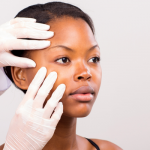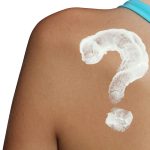What is the Best Skin Care Routine for You?
Creating an effective skin care routine can take time and effort. Everyone has different skin tones, textures and problem areas, so what works for one person may not work for another. Our skincare goals differ, too. Some of us want clear skin, while others may want to fight the signs of aging. These goals factor into our skin care regime.
Five Skin Types
Most people fall into one of the five primary skin types. The five categories are based on the amount of sebum, or oil, your skin produces.
- Normal skin is balanced between oily and dry.
- Dry skin appears flaky and feels tight.
- Oily skin produces excess oil.
- Combination skin has areas that are oily and dry.
- Sensitive skin is easily irritated by certain ingredients.
Your skin type can change depending on your age. Teenagers and young adults tend to have oily skin. People over 40 may develop dry skin. Knowing which skin type you have can help you decide which products will work best.
You can implement a few basic skin care steps into your routine to keep your skin looking its best. Keep in mind that the best skin care routine is one that you can maintain long-term because results will not occur overnight.
Let’s look at a few skincare products to start with on the road to healthy skin. Basic skin care incorporates a cleanser, moisturizer and sun protection into your regime to help you achieve your skin care goals.
Cleanser
The foundation of any skin care regime is a cleanser. Use a gentle cleanser that is not abrasive and does not strip your skin of natural oils. Generally, washing your face once in the morning and once at night is enough unless you have worked out or spent time swimming in salt water or chlorine.
Foaming liquids are great for oily skin, while cream or lotion-based cleansers are best for dry skin. People with sensitive skin should find a fragrance-free formula that is non-comedogenic, which can clog pores.
Sunscreen
Wearing sunscreen daily, even if you are not spending time outdoors, is essential in your skin care routine because it protects your skin against harmful ultraviolet (UV) rays. Skin cancer is one of the most common cancers and usually occurs because of too much sun exposure.
Applying sunscreen to your face, neck, chest and other exposed areas should be one of the first things you do in the morning. Use sunscreen with a broad spectrum SPF of 30 or more. Here are the sunscreens our dermatologists recommend.
Moisturizer
All skin types can benefit from a good moisturizer because it traps water in your skin, leaving it plump and hydrated. Many options are available, including sunscreen for daily wear and thicker creams for nighttime. An eye cream can boost moisture if you have issues with puffiness and fine lines around your eyes, so you may want to include that in your basic skin care steps.
Gel moisturizers work well with oily skin because they absorb quickly. Normal or combination skin can benefit from lotions. Cream moisturizers can help with dry skin. People with sensitive skin should choose a fragrance-free option.
Columbia Skin Clinic offers a variety of moisturizers formulated for different skin types.
Additional skin care products
Many people incorporate other products into their routines based on their skin type, issues and age. Your need for certain products can vary depending on how old you are, the environment where you live and other factors. Here are more skin care tips and products to consider adding to your routine based on your specific needs.
Acne medication
Teens and young adults often struggle with acne. Everyone has breakouts now and then, and some adults develop hormonal acne with age. Over-the-counter products with salicylic or glycolic acid can stop bacteria and reduce inflammation. A dermatologist can prescribe a topical retinoid for severe or ongoing acne.
Exfoliants
Exfoliating products remove dead skin cells on the surface to encourage new cell growth. Incorporating an exfoliant into your routine can help unclog pores and reduce fine lines and sun damage. Exfoliating once a week should give your results without irritating your skin. Always follow with a hydrating serum or moisturizer to prevent dryness.
Hydrating Serums
As we age, our skin loses moisture and elasticity. Hydrating serums with hyaluronic acid can reduce the signs of aging and keep skin supple because they have a higher concentration of active ingredients than regular moisturizers. Serums can also help brighten skin and reduce blemishes.
Retinoids/Retinols
Products with Vitamin A compounds like retinol and retinoic acid help with anti-aging. They are proven to repair sun-damaged skin and reduce fine lines and wrinkles.
A doctor can prescribe retinoids like tretinoin. Retinol is a less potent formula that can be found in over-the-counter products. It works, but it may take longer to see results.
Is your skin care routine working?
Once you start a new skin care routine, wait at least a month for signs of improvement. It takes around 30 days for old skin to slough off and new cells to form. Your best skin care routine should leave your skin feeling smooth and hydrated and reduce problems like blemishes and dark spots.
After a month, if you have not had any new problems with your complexion, you can continue using your products and following your skin care steps. However, if you have breakouts or other issues you have never had before, it may be time to reevaluate the products you are using.
Your skin is your largest organ, so it will quickly show signs of an allergy or irritant. However, some products, like retinol, may cause temporary dryness or irritation, but they should subside after a few weeks.
Need help with your skin care routine?
Columbia Skin Clinic’s trained estheticians or board-certified dermatologists can help you find a skin care regime that works for your skin type, lifestyle and budget. We offer a selection of products to help you feel more confident about your skin. Call us to schedule an appointment.






